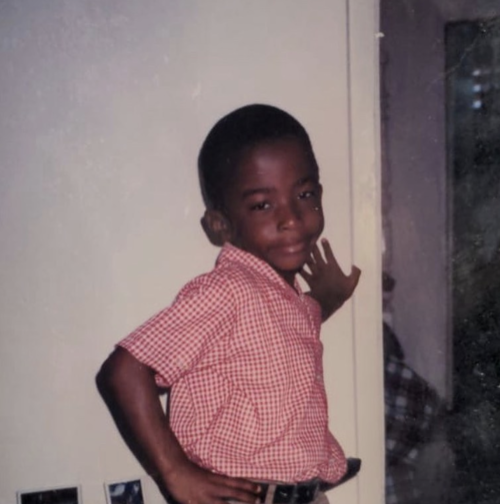The Good Prince
Interview by Jina DuVernay
This past summer I was selected to partake in my first ever writers retreat facilitated by the Hurston/Wright Foundation. The few of us that convened in the fiction writing workshop got to know each other well by the end of that week. In some ways our camaraderie was akin to the kids in the movie “The Breakfast Club,” fast and meaningful. There was one guy who had a captivating look about him with his earth-colored hair and striking face. He seemed to have sort of a mysterious quality about him but when he spoke, he was intentional and warm. As the days went by, I liked him more and more. He was outgoing and just an all-around interesting dude. It wasn't until we were approaching the end of our week-long workshop that I learned that his first book would be published in a few months' time. He had written a memoir and I was impressed because that is no small feat! Here was this young 20-something-year-old guy who got it done! And the little bits and pieces that I gleaned from our conversations about his life let me know that his memoir would indeed be one for the books (pun intended). Prince Shakur spared some time a week before his book launch to answer a few questions about “When They Tell You to Be Good.”
https://www.princeshakur.com/bio-1
Congratulations on your first published book, “When They Tell You to Be Good!” Give us your best elevator pitch about the book.
“When They Tell You to Be Good” is a memoir that charts my political coming-of-age from queer, closeted kid in a Jamaican family to anarchist writer and traveler organizing in Obama and Trump's America. A lot of the book grapples with my reckonings with family, masculinity, and what it means to live a bold queer life in the far-off reaches of the world. In a lot of ways, I aim for this book to expand on how men write about masculinity.
What is your take on how men, particularly Black men, currently write about masculinity?
I think there’s a lot of work to be done. Much of the memoir writing by Black men that I read while preparing for my memoir was great at highlighting movements, like the Black Power Movement, but ultimately led to these men, like Huey Newton or Eldridge Cleaver, caricaturing themselves as strong, lofty revolutionaries. After I did more research, I learned that much of these facades disguised deeper emotional, mental, drug, and trauma-related issues. How do men humanize themselves without hurrying past the things that have harmed or altered us? How do we humanize ourselves while being honest about how we hurt others? These are central questions I wanted to contend with in my work as queer, Black man; someone both targeted by the state and who represents a very clear part of the patriarchy, who can also be destroyed by it as well. This intersection is something worth illuminating.
https://www.princeshakur.com/bio-1
Do you have any advice for debut authors?
My biggest advice would be to make friends and collaborators along the way as you write. Yes, the process, craft, and work matter, but once the business side of being a writer or author arrives, it can be overwhelming. Having people to talk to in similar situations can help.
Is book two on the horizon?
Yes, I’ve been working on novel edits with my agents, a book set in 1986 and 1987.
You can find out more about Prince on his website at https://www.princeshakur.com/.
Jina DuVernay
is the Adult Services Manager for Gwinnett County Public Library. She actively participates in a number of initiatives that advocate for the collection, stewardship and discoverability of resources related to African American history and culture. DuVernay holds Master’s degrees from Auburn University at Montgomery and the University of Alabama. She is currently pursuing a PhD in Humanities at Clark Atlanta University.



